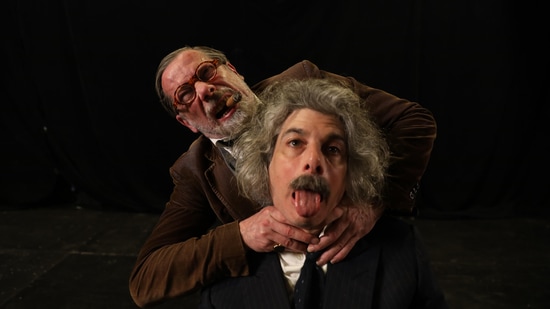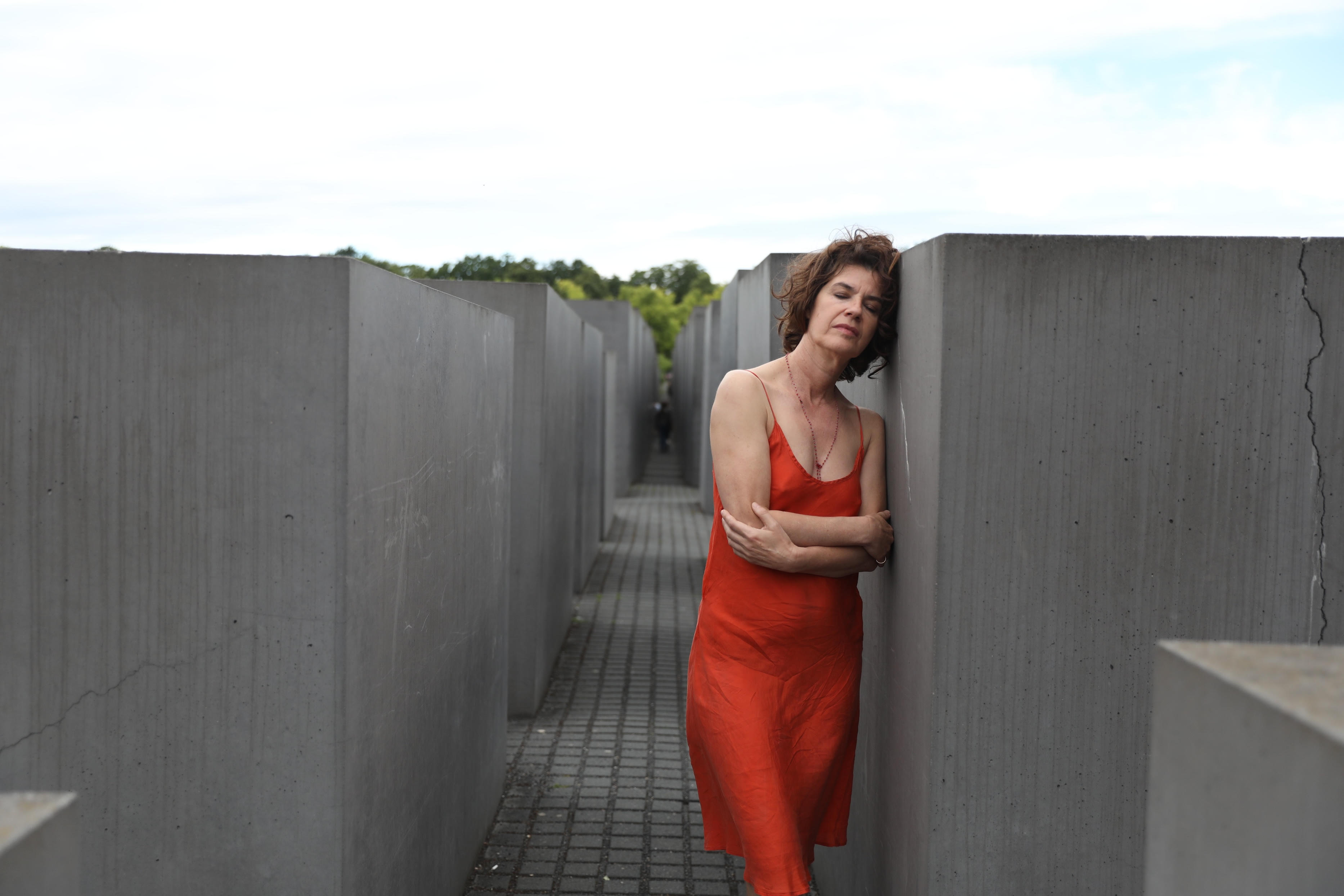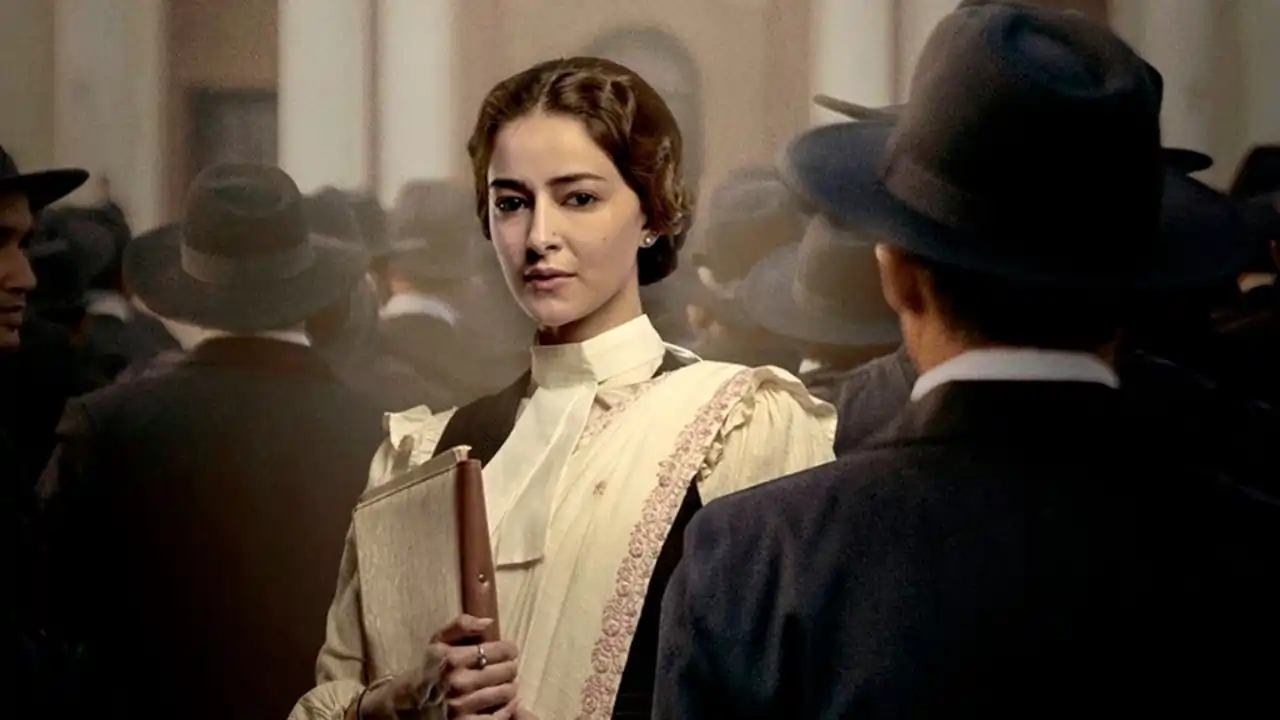
Why War searches for explanation of savagery of conflicts through Einstein and Freud's letters: Amos Gitai
8 months ago | 93 Views
After the horrors of the Hamas invasion of Israel on October 7 last year, Amos Gitai decided to read and reread books to seek comfort in the reflections offered by intellectuals. The celebrated Israeli filmmaker and artist soon found refuge in a book, called Why War? A Correspondence Between Albert Einstein and Sigmund Freud. Between 1931 and 1932, Einstein and Freud exchanged letters to search answers for the questions—Why the war? Why do people go to war with each other? More literature emerged from Gitai’s library—Three Guineas, a 1938 essay by English writer Virginia Woolf, in which she investigates the relationships of domination in sexuality, and American writer Susan Sontag’s 2003 essay, Regarding the Pain of Others, which talks about the iconography of war.
All the above works have inspired Gitai, the Haifa-born director of acclaimed films such as The Last Day of Yitzhak Rabin, about the assassination of the former Israeli prime minister in 1995, and West of the Jordan River, on ordinary citizens of Israel and Palestine striving for peace, in the making of Why War, his new movie that will have its world premiere at the Venice film festival next month. Gitai, who lives in Paris, talks to Faizal Khan about Why War, how the October 7 events and the ongoing war in Gaza influenced his artistic pursuit, and why the letters about wars between Einstein and Freud remain more relevant today than ever.
What is Why War about?
The film Why War comes out following an exchange of letters between Albert Einstein and Sigmund Freud, which defined the modern discourse on mass human violence that occurs in the name of religion, race and nationality. In 1931, Einstein was invited by the League of Nations, which preceded the creation of the United Nations, to choose an intellectual to address a letter on any subject to any person. He chose to correspond with Freud about avoiding war. Einstein maintained the importance of establishing an independent judicial body to mediate disputes. Freud agreed with this idea but also felt that "it is unlikely that we can suppress the aggressive tendencies of mankind".
To this day, the correspondence about war between two of the greatest thinkers of all time proves to be more relevant than ever. Inspired by this correspondence between Einstein and Freud almost a century ago, Why War traces the roots of war, and embarks on a search for an explanation of the savagery of wars that inhabit our world.
How do you negotiate the boundaries of fiction and documentary in Why War?
The film stars actors from Israel and around the world, including French actor-director Mathieu Amalric (On Tour, The Blue Room), French actor Micha Lescot, (Redoubtable, Forever Young), French-Swiss actor Irène Jacob (The Double Life of Veronique) and French actor Jérôme Kircher (A Very Long Engagement, Café de Flore), with the participation of Israeli actors Yael Abecassis (Rabin, the Last Day; A Borrowed Identity) and Keren Mor (Joy, Year Zero). The movies I make like House (1980), Kadosh (1999), Kippur (2000) and Rabin, the Last Day (2015) are always inspired by the reality in which we live. Once again, I chose to have a dialogue with the cruel reality that exists in this region (Middle East), and to show it on the greatest cultural stages in the world. The film avoids the iconography and photographs of the horrors of war and destruction that continue to fuel the wars.

What was the process of production, in terms of location and filming?
We filmed in French between Israel, Berlin and Paris.
Would you briefly describe the research and the hunt for archival material?
The idea was to make a narrative film without seeing the war. I also based myself on a 1938 essay by Virginia Woolf called Three Guineas, in which she investigates the relationships of domination in sexuality, to which Susan Sontag responds in another essay in 2003, Regarding the Pain of Others, which talks about the iconography of war. Today you just have to turn on the television to be overwhelmed by the terrible images of Israeli women raped by Hamas, by the destruction of Palestinian villages in Gaza. It is an iconography that precisely amplifies war. If I am an Israeli citizen and I see what happened to some women on October 7, it is almost natural to think of revenge for the war. And equally, if I am a Palestinian and I see my loved ones dying under the bombings, I will feel the same feeling of revenge and hatred that leads to armed conflicts.
How has October 7, 2023 and the war in Gaza impacted on the production?
When the attack on October 7 occurred, I wanted to read and reread some texts to seek help and comfort in the reflections of intellectuals. And in this search the book, Why War? A Correspondence Between Albert Einstein and Sigmund Freud, was a revelation. And the question around which these two great minds found themselves was---Why the war? Why do people go to war with each other?
We are not condemned to war and violence, on the contrary. But it is true that in some ways it is the easiest solution and at the same time the most terrible. When I dealt with former Israeli prime minister Yitzhak Rabin's assassination for a previous film, this was already the crux of what I was trying to understand. This book, which collects the correspondence between Einstein and Freud, continues my research on how armed conflicts can be avoided, and how it is possible to find peaceful solutions to reconcile distant positions. Around this extraordinary dialogue between two brilliant intellectuals, I built a poetic film in which the war is never seen.
A lot of cinema has already told about the war, and continues to do so. I wanted to take on another challenge, explore another narrative approach, having the fortune of these magnificent texts and a formidable cast that gives voice and presence to this reflection. Mathieu Amalric plays Freud while Micha Lescot is Einstein. The film also features Yael Abecassis, Irène Jacob, Keren Mor, and many others with whom I usually work.
You brought Israeli and Palestinian musicians to the Berlin film festival early this year for your previous film, Shikun. What makes you an eternal optimist for peace?
Even if I personally started from the Israeli-Palestinian conflict, the film moves towards a universal reflection that could be applied to the war between Russia and Ukraine, to what is happening in Sudan. Unfortunately there is no shortage of examples. There is my personal, human baggage. I lived alongside ethnic, religious and political divisions, always trying not to get overwhelmed. And for me cinema has a civil mission. That's what I try to bring to my cinematography. We live in a world in which dialogue has become increasingly complicated and this favours extreme positions as we also see in many parts of the world. So Why War isn't a film that wants to give an answer, but to make us all question ourselves.
We directors, but all artists in general I believe, must not resign ourselves to divisions. On the eve of October 7, I knew that we were in an explosive situation in Israel but this awareness did not cushion the trauma for someone like me who has long been trying to get Israelis and Palestinians to talk through art. It's what I've been doing for years in my theatre shows and in my films. In Africa, the traditional role of artists was to be healers. To heal souls. Here, this is what I think art should tend towards.
Read Also: Richa Chadha poses with baby daughter along with ‘masis’ Shabana Azmi, Dia Mirza, Urmila Matondkar and Tanvi Azmi #



















